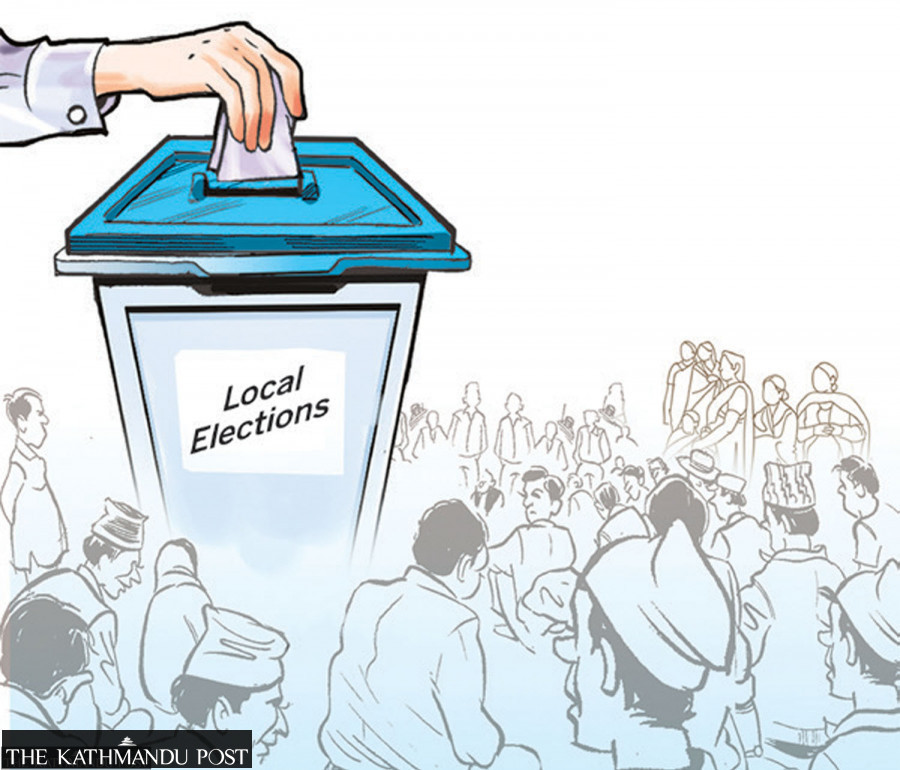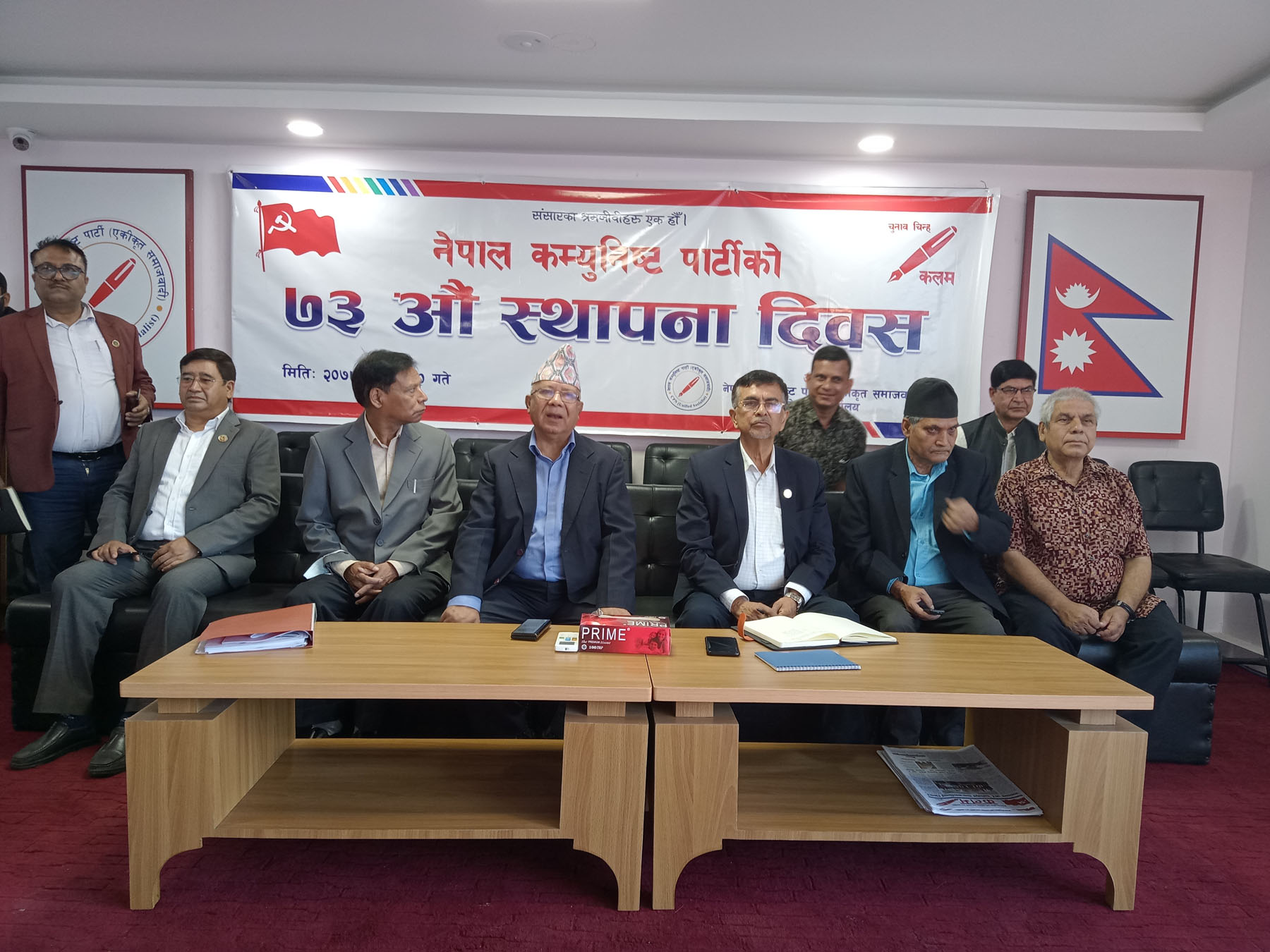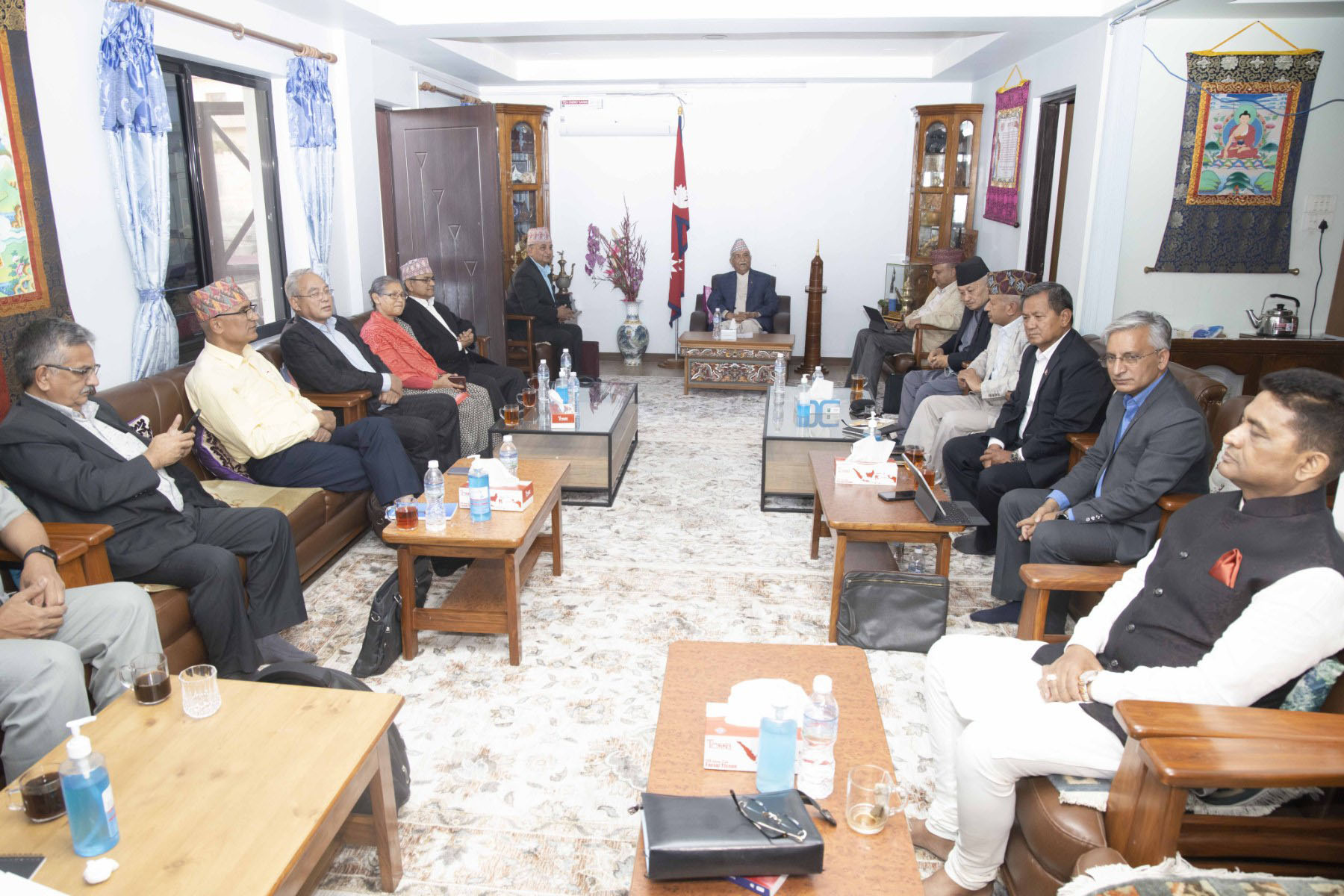Politics
Parties struggle to select candidates for local polls on the eve of nomination filing
Coalition’s challenges huge despite deal to share seats at all units. Even UML has yet to decide on various positions.
Tika R Pradhan
While addressing a regular press briefing on Saturday, Chief Election Commissioner Dinesh Thapaliya said all the preparations for the nomination filing for the upcoming local level polls scheduled for May 13 have been over and that the Election Commission has already set the ball rolling.
The poll body has set Sunday and Monday aside for the parties to file nominations—from 10am to 5pm.
b.jpg)
However, political parties registered for contesting the polls—especially those from the ruling coalition—were struggling until Saturday evening to finalise their candidates for 276 (urban) municipalities and 460 rural municipalities. These parties in the coalition have already reached a deal on sharing seats in six metropolitan cities and 11 sub-metropolitan cities.
Many say parties might have been taking time because they have two days in hand.
In the last elections in 2017, the Election Commission had given only one day to file nominations.
But party insiders say rather than the room of two days given by the poll body, it’s a lack of a deal among coalition partners that delayed the finalisation of candidates.
As many as 35,221 representatives will be elected from the upcoming polls for 753 local bodies.
Madhav Kumar Nepal, chair of the CPN (Unified Socialist), one of the members of the ruling coalition, on Saturday expressed dissatisfaction at the failure to decide on candidates for most of the local bodies by the alliance partners.
Addressing a function in Kathmandu, Nepal said the seat-sharing at metropolitan and sub-metropolitan cities was encouraging but failure to take a similar step for other local units is demoralising.

His dissatisfaction stems from the fact that his party has been demanding seats where the CPN-UML had won. The Unified Socialist was formed after splitting from the UML.
UML deputy General Secretary Vijay Poudel said that decisions on seat-sharing are yet to happen in at least 65 districts. He also complained that the Congress and CPN (Maoist Centre) undermined the strength of his party, which is why the alliance could not happen at most of the local federal units.
However, senior Maoist Centre leader Barshaman Pun said that the coalition parties have managed to reach alliance deals in almost 60 percent of the local units, and that could go up to 70 percent by the time nominations are filed.
“We are expecting to have seat-sharing deals in 80 percent of the local units by the time the Election Commission publishes the final list of candidates,” said Pun, who is also a member of the Election Preparation and Monitoring Committee of the coalition led by Nepali Congress leader Ram Chandra Poudel.
Poudel and Pun’s assertions indicate that the five-party coalition will not be able to reach seat-sharing deals in all local units.
The five-party coalition has said that in places where the partners cannot forge an electoral alliance, there will be a “friendly competition” among them, whatever that means though.
In the Congress and the Maoist Centre, discontent has grown at the lower levels, which may make it even more difficult to finalise candidates.
On Thursday the UML Secretariat decided to finalise the party’s candidate on Saturday. But the party’s meeting scheduled for 2pm started only in the evening. The party on Saturday finalised five mayor and three deputy mayor candidates for the six metropolitan cities.

The party is yet to finalise mayor and deputy mayor candidates for Nepalgunj and Jitpur Simara sub-metropolitan cities and deputy mayor of Kalaiya sub-metropolis.
“Since Monday is the deadline for nomination filing, we will finalise all our candidates by then,” UML Publicity Department Chief Prithvi Subba Gurung told reporters after the party’s Secretariat meeting on Saturday evening. “Our provincial committees will finalise the candidates for other local levels and the leadership will take a call if they fail.”
The UML has decided to field Keshav Sthapit and Sunita Dangol as the mayor and deputy mayor of the Kathmandu Metropolitan City. Sthapit in the 1990s served as the Kathmandu mayor. He was a minister in the Bagmati provincial government in 2018, but he resigned after facing #MeToo charges by at least two women.
The UML though has decided to contest local elections by and large on its own. It has also forged alliances with such fringe parties as Rastriya Prajatantra Party, Nepal Pariwar Dal and Janamukti Party in some local units.
In general, the UML doesn't have much issue when it comes to filing the nominations; it’s the coalition that faces the challenges, and this was evident from the Nepalgunj incident also. The Maoist Centre on Saturday decided to stay out of the electoral alliance at Nepalgunj Sub-Metropolitan City and decided to fight the election on its own.
Meanwhile, a meeting of top leaders of the five coalition partners held at Baluwatar late Saturday evening decided to finalise seat-sharing by holding discussions at 3pm Sunday.
“The meeting of the top leaders of the coalition scheduled for 3pm will finalise all the remaining disputes regarding seat-sharing and nominations will be filed accordingly on Monday,” said Ramesh Malla, chief personal secretary of Maoist Centre chair Pushpa Kamal Dahal. “In today’s meeting, the leaders said they should resolve issues if the lower level committees fail to forge an alliance.”




 8.79°C Kathmandu
8.79°C Kathmandu














